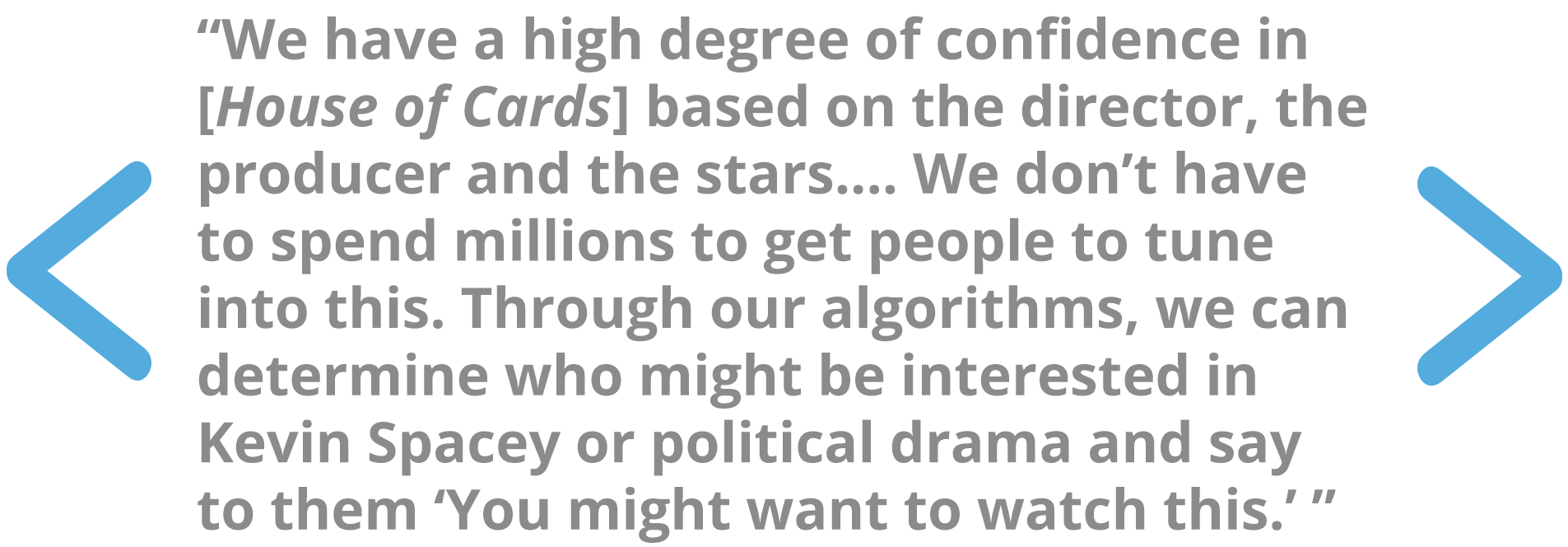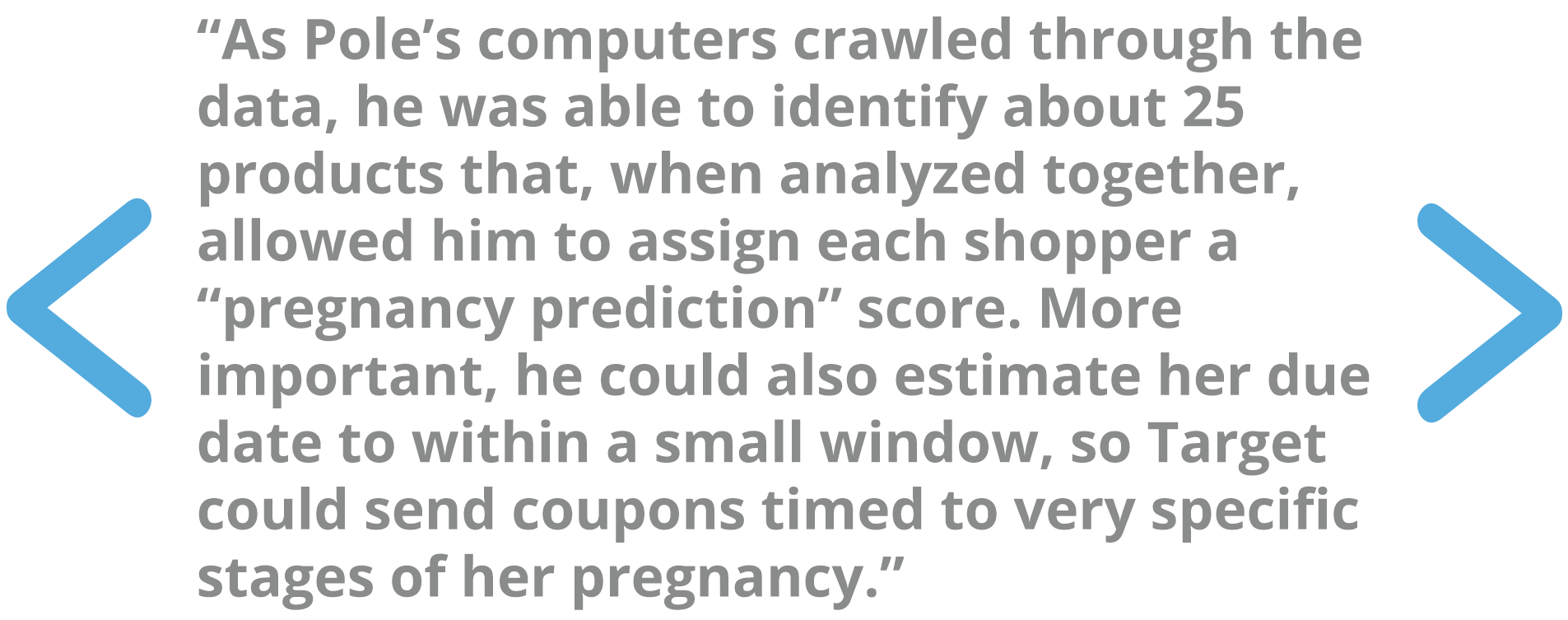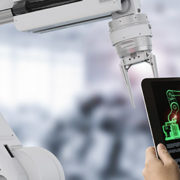4 ways companies use big data to make smarter decisions
Things are permanently in overdrive for business leaders. They make decisions on the whim and rely on instincts to get them from point A to point B.
Sometimes this works out for the best … other times, not so much.
This is mainly because you aren’t working with the “big picture.” You’re exchanging visibility for instinct, and that’s the furthest from strategic you can get.
But now, thanks to new technology and its ability to interpret big data, business professionals can still make decisions quickly — but they can do so in a smarter, more strategic way.
Let’s take a look at how businesses use big data to make smarter decisions.
Big data and the future
As more and more people cut ties with big box cable providers and opt for a stream-only mentality, subscription-based providers like Netflix and Hulu are using big data to justify future purchases.
Instead of purchasing films and TV series based on instinct and what’s been popular in the past, they use viewing habits, preferences, and ratings to strategically greenlight content.
In fact, this is a direct result of why Netflix aggressively bid for exclusive viewing rights to House of Cards. They knew people watched and liked The Social Network, Kevin Spacey, and the British version of House of Cards.
However, this is only partly why House of Cards has been so successful on Netflix. They’ve also relied on various algorithms (much like Target does) to strategically push shows and films to specific users.
Big data and customer service
Customer service is a huge part of any business. You either have good customer service or you don’t, and that can ultimately dictate whether or not your company is successful.
Big data can help your company steer customer service tactics, processes, and methodologies in the right direction. It gives you the ability to answer questions before they’re asked and solve issues before they become problems.
Consider Costco.
To shop at Costco, you have to be a member. You have a member ID, and that ID tracks all of your purchases. Costco uses this not just to identify purchasing trends and target their marketing efforts — but they also use it to resolve issues.
For example, Costco recently used purchasing data to notify customers about a possible Listeria contamination in stone fruits sold at their stores. Calls were made; letters were sent out, and a large PR issue was successfully avoided.
With more than 70 million members, it’s amazing how quickly Costco was able to filter through their data and react to the news.
Big data and marketing
Target is able to use big data to precisely focus its marketing efforts. In fact, they’re so good at this that they can digitally determine who’s pregnant and automatically send out coupons based on those determinations.
Their knack for determining pregnancies even landed them in a bit of a PR scare a while back.
But nonetheless, it works, and it works well.
They aren’t wasting time, money, or resources on marketing. Everything is targeted and strategic thanks to big data and the technology that can turn that data into information.
Big data and efficiency
Companies everywhere are leveraging big data to automate processes and spot trends that would otherwise take a person hours, days, or even weeks to uncover.
Consider the US-based accounting firm BDO.
They use big data to identify inconsistencies that could indicate potential risk or even something as damaging as fraud. Back in the day, this identification process would take BDO analysts days to follow through with. But with the right technology and the proper accumulation of data, this process is now automated, accurate, and insightful for BDO employees.
Big data isn’t the only way to strategically improve your business. Take a look at 5 workflow automation examples that can make life easier.


















